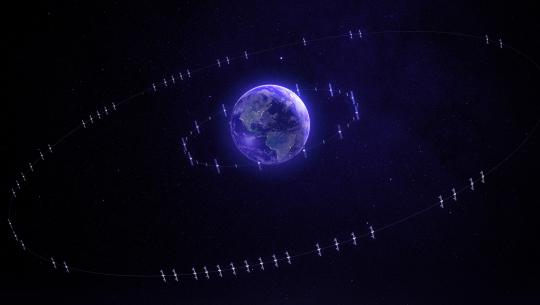Blog
Filters
Blog


Blog |
Satellite’s Expanding Role in Powering the Next Era of Telco Growth
Satellite’s Expanding Role in Powering the Next Era of Telco Growth Read more
Blog


Blog |
WRC-27 Agenda Item 7: A pathway to improving satellite regulations
WRC-27 Agenda Item 7: A pathway to improving satellite regulations Read more
Blog


Blog |
SES Brings the World's Biggest Sports Events to Passengers in the Sky
SES Brings the World's Biggest Sports Events to Passengers in the Sky Read more
Blog


Blog |
Bridging Satellite and Cellular: SES and Lynk Team Up to Deliver Multi-Orbit Direct-to-Device Connectivity for Commercial and Government Markets
Bridging Satellite and Cellular: SES and Lynk Team Up to Deliver Multi-Orbit Direct-to-Device Connectivity for Commercial and Government Markets Read more
Blog


Blog |
From Cost Center to Economic Driver: How Airlines that Partner with SES can Accelerate Revenue with Satellite Inflight Wi-Fi
From Cost Center to Economic Driver: How Airlines that Partner with SES can Accelerate Revenue with Satellite Inflight Wi-Fi Read more
Blog


Blog |
Newsflash: SES and Infinite Orbits to Collaborate in Europe’s First Commercial Life Extension Mission
Newsflash: SES and Infinite Orbits to Collaborate in Europe’s First Commercial Life Extension Mission Read more
Blog


Blog |
Newsflash: SES Boosts Asia Satellite Capacity with SKY Perfect JSAT Agreement
Newsflash: SES Boosts Asia Satellite Capacity with SKY Perfect JSAT Agreement Read more
Blog


Blog |
Newsflash: Arqiva and SES Sign Multi-Year Capacity Agreement
Newsflash: Arqiva and SES Sign Multi-Year Capacity Agreement Read more
Blog


Blog |
Building Intelligent Networks for a Connected World: Powering Industrial Automation with O3b mPOWER
Building Intelligent Networks for a Connected World: Powering Industrial Automation with O3b mPOWER Read more
Blog


Blog |
Navigating the NGSO Era: Balancing Sovereignty, Safety, and Innovation at WRC-27
Navigating the NGSO Era: Balancing Sovereignty, Safety, and Innovation at WRC-27 Read more
Blog


Blog |
Newsflash: SES Launches ASTRA TV in Spain
Newsflash: SES Launches ASTRA TV in Spain Read more
Blog


Blog |
